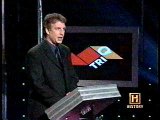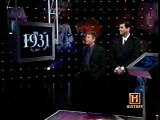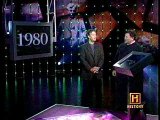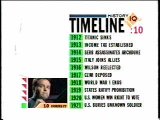


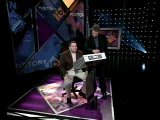

![]()
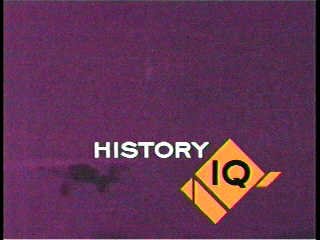
"What's your History IQ?" |
Why is there a History IQ page on a site primarily dedicated to older shows? I find History IQ to be the most thought provoking and challenging game on U.S. television in a decade, the last of which was "The Challengers" from 1990-1. I played the enhanced game with the show every weekday at 2:30 PM Eastern (until 2nd and 3rd shift at the place I work at was canned; <grumble grumble grumble>). If you see "mikekinoh" on the leader board, that's me!
The 2nd round is called Tri Q. 3 answers are shown and a question is read to the 2 remaining participants. A correct answer is worth $200 and the option of taking a follow-up question for $100. There is a risk in this round since incorrect answers take away the value of the question, whether it's a $200 question or a $100 follow-up. If a player is incorrect on a follow-up question, the opponent does not get a chance to answer the question.
When there is under one minute left in the Tri Q round, the remainder of the round becomes a speed challenge with the same 3 responses like New York, Philadelphia, or Boston, etc. One of the 3 choices answers a question or completes a phrase. Each right response in the speed round is worth $100 while each wrong answer deducts $100. The opposing player does not get a chance to reply after an incorrect answer. Whomever is ahead after the speed round wins their money and the opportunity to add $25,000 in the History IQ Timeline. The contestant with the lower score leaves with a nice 2nd place prize.
Did you know...
* Marc Summers was in the Navy for 28 days?

Broadcast History: October 2, 2000-present
Host: Marc Summers
Announcers: Harvey
Executive Producers: Dana Calderwood, Michael Klinghoffer, Shirley Abraham, Charles Nordlander
Music: Edd Kalehoff
Packager: Glow in the Dark Productions for The History Channel
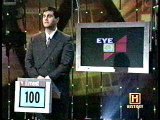
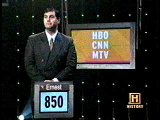
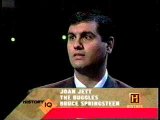
To start the show and the Eye Q round, a video clip is shown. The question that accompanies that clip is worth $100 and control for the group of follow-up questions about the topic or some variant of it (like questions about Julius Caesar and Caesar salad or the Boxer Rebellion and famed boxers) each worth $50. If a question is missed, either of the opponents can answer it for $50 and control of the follow-up questions. The Eye Q portion continues for 4 rounds of questions. The person with the lowest score is eliminated and takes home a parting gift.

